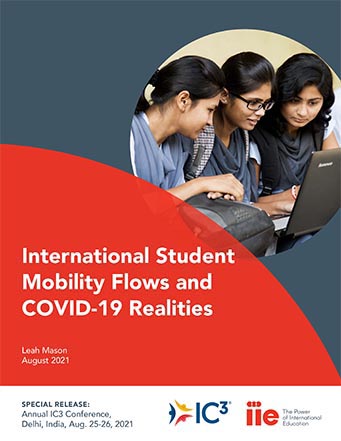New research shows that, whereas COVID-19 has dampened the international mobility of students from Africa, the numbers of those already pursuing international degrees remained steady.
This creates opportunities for university recruiters who want to capitalise on African students’ demand to study away from home.
The study, ‘International Student Mobility Flows and COVID-19 Realities’, was jointly conducted by the Institute of International Education and the International Career and College Counselling Institute, or IC3 Institute, and states that, despite global travel restrictions, strict visa processing services and stringent public health policies that were enforced for most of last year, many governments are now encouraging universities to recruit international students.
In the African context, the outward mobility of African students declined since the outbreak of the pandemic, but the number of students who were already studying outside their home countries remained stable.
“As a result, continuing international student numbers held steady, and declines were reported primarily around new international student enrolment,” stated the report.
Although the number of African students seeking higher education abroad is expected to fall significantly in some host countries such as China, Australia and Japan, other countries are likely to gain from their losses.
According to Dr Leah Mason, the author of the report and head of the research, evaluation and learning unit at the Institute of International Education, the US, United Kingdom, and Canada are likely to gain as they have eased travel restrictions to allow international students to re-enter the countries for study purposes, and increased face-to-face instruction has accompanied those actions.
France, another popular destination for students from Sub-Saharan Africa and North Africa, is also likely to benefit from new enrolments as there has been political will on the part of the French government to host international students.

